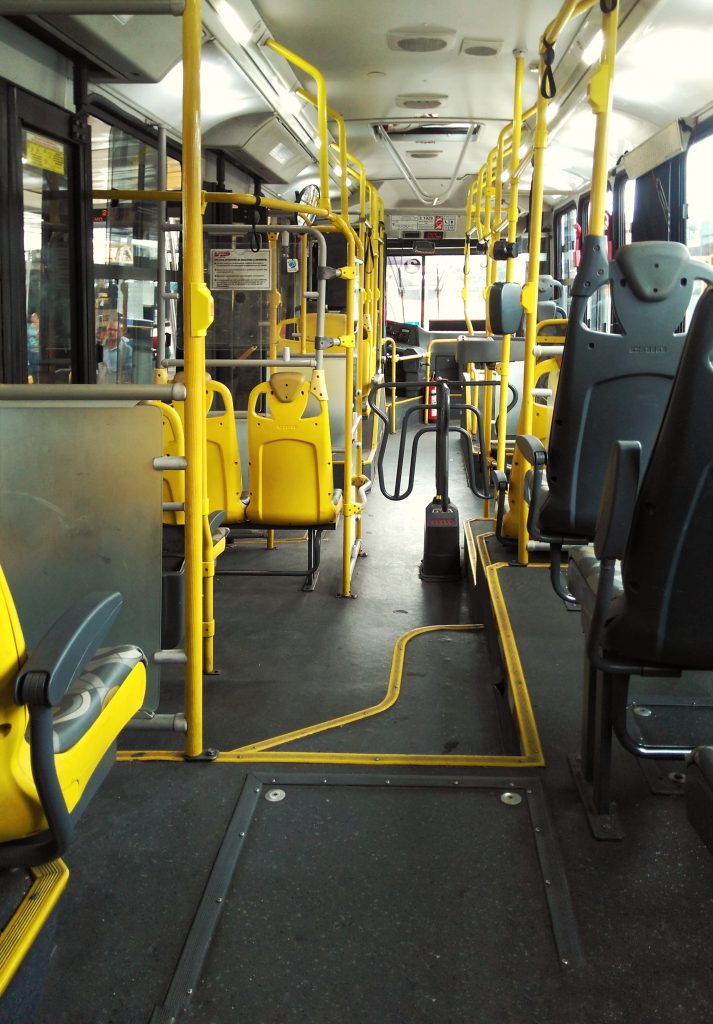 Once a trial court determines a judgment, it is difficult to obtain a reversal, especially if the judgment is one in which a jury awards compensation for a personal injury plaintiff. In the case below, the defendant appealed the amount the Trial Court awarded the plaintiff. The Appellate Court was deferential to the Trial Court’s judgment.
Once a trial court determines a judgment, it is difficult to obtain a reversal, especially if the judgment is one in which a jury awards compensation for a personal injury plaintiff. In the case below, the defendant appealed the amount the Trial Court awarded the plaintiff. The Appellate Court was deferential to the Trial Court’s judgment.
Joc-Kia Wilson suffered from cerebral palsy and thus moved around on a motor scooter. While she attempted to board a bus operated by Veolia Transportation Services in New Orleans, the wheelchair lift ramp had apparently malfunctioned and caused her to fall. When she visited a hospital, an MRI revealed that various parts of her body were sprained. Ms. Wilson filed a claim against Veolia Transportation Services for compensation. The Trial Court awarded a total of $19,879.00 to Ms. Wilson for her pain and suffering and medical expenses. This amount was reduced by forty percent because of Ms. Wilson’s fault in the accident. However, Veolia Transportation Services disagreed that Ms. Wilson was only forty percent at fault. Veolia also argued that the amount awarded to Ms. Wilson was faulty because she had not presented relevant evidence for her medical injuries. Veolia asked the Appellate Court to set aside the trial court’s decision.
An appellate court may cast aside a trial court’s finding of fact only if it is “clearly wrong.” Rosell v. ESCO, 549 So.2d 840 (La. 1989). In order to rule that a finding of fact is “clearly wrong,” the appellate court must first show that it cannot find any factual basis for its decision from the trial record. Second, the appellate court must determine from the record that the trial court’s finding is clearly wrong. Mart v. Hill, 505 So.2d 1120, 1127 (La. 1987). To put it simply, the appellate court must determine whether or not the decision made at the trial court level was a reasonable one. Cosse v. Allen-Bradley Co., 601 So.2d 1349, 1351 (La. 1992).
The Appellate Court, using the above standard, found that the percentage of fault attributed to Ms. Wilson was reasonable. The Appellate Court noted that Ms. Wilson knew the bus’s lift ramp was lowered onto uneven ground, but she still chose to use it rather than asking the driver for assistance. On whether Ms. Wilson provided relevant evidence for her medical injuries, the Appellate Court found that Ms. Wilson did provide relevant evidence. The Appellate Court stated that the medical bills Ms. Wilson provided were relevant evidence and there was no evidence disputing that the bills were not associated with the accident at issue. Therefore, the Appellate Court affirmed the decision of the Trial Court.
It is extremely difficult to reverse a trial court’s decision unless the trial court made a clear mistake that affected the outcome of the case. If an appellate court were to frequently reverse trial court decisions, public opinion of the law would plummet. Thus, appellate courts tend to be deferential to trial court decisions in most cases.
Additional Sources: Wilson v. Veolia Transportation Services
Written by Berniard Law Firm Blog Writer: Peter Lee
Additional Berniard Law Firm Articles on Affirmation of Trial Court Damages: Monroe City Trial Courts Award for Damages in Car Accident Case Affirmed
 Louisiana Personal Injury Lawyer Blog
Louisiana Personal Injury Lawyer Blog

